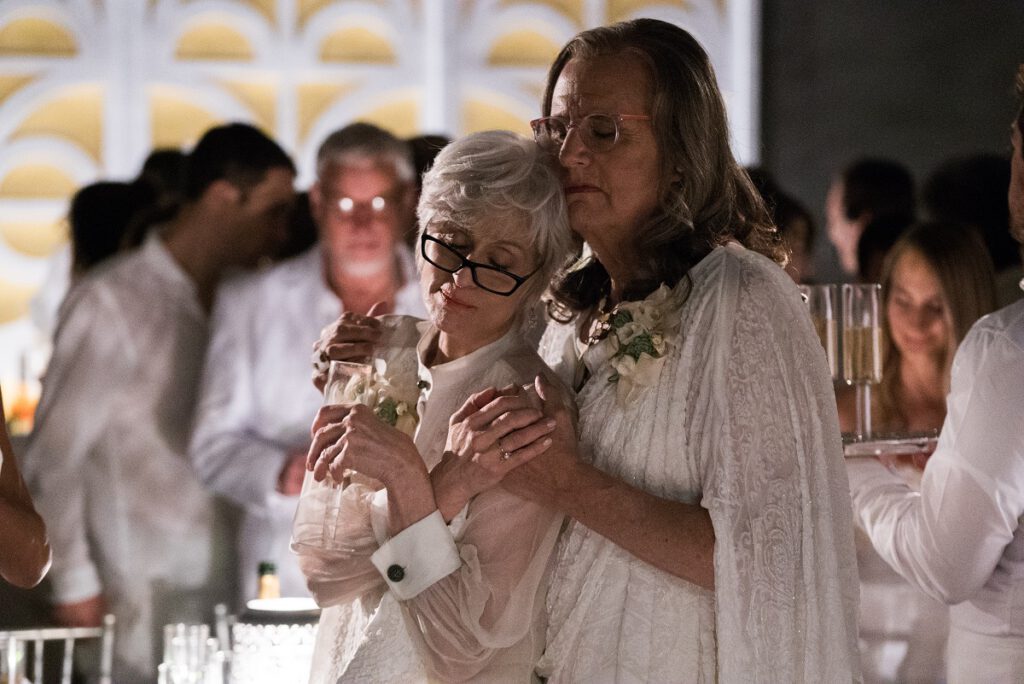Amazon’s “Transparent,” returning for a second season
Friday, December 8th, is one of television’s most daring
explorations of what it means to be happy. In the award-winning program’s
complex new season, creator Jill Soloway and her team are examining that human
tendency to think that our problems can be fixed. “I’ll finally be happy if I
only do this.” There’s always another
this. Every day, in every corner of
the world, there are people realizing that getting married didn’t cure their
depression; having kids didn’t fix their family; revealing their gender identity
didn’t make the sun come out every day. “Transparent” is one the best programs
in a long time (“Six Feet Under” also played with this idea of eternal
dissatisfaction) to explore these complex themes. Sometimes I think Soloway’s
dialogue can be a bit overwritten (people often express things with a writer’s
degree of insight instead of a realistic one) but then one of the performers in
this amazing ensemble will do something so true and heartbreaking that it doesn’t
matter. In fact, “Transparent” is often at its best when Soloway just lets her
already-rich characters live and find happiness in this world. Or at least try
to do so.

The first season of “Transparent” was primarily about Maura
Pfefferman’s (Jeffrey Tambor) revelation to her family that she was transgender.
Tambor deservedly won nearly every award he could for the way he broke new
ground in the representation of gender identity on TV. There’s such a delicate
touch to this performance, ignoring the easy traps into which an actor could
fall to find the truth in this complex character. In many ways, Maura’s three
children—Ali (Gaby Hoffman), Sarah (Amy Landecker) and Josh (Jay Duplass)—were spurred
to find their own blisses by their father’s discovery of his own. Sarah
revealed her love for Tammy (Melora Hardin), destroying her marriage to Len
(Rob Huebel). As Sarah’s family dissipated, Josh created one, falling in love
with Raquel (Kathryn Hahn), and discovering he has a biological teen son. Ali
seemed to struggle the most, but there’s always been a sense that she’s looking
for something, anything to make her happy.
At the beginning of the second season of “Transparent,” that
happiness seems within reach. Sarah and Tammy are getting married, Raquel is
pregnant, and Maura is attending her daughter’s wedding.
However, cracks in this happy façade appear early. A photographer calls Maura “him,”
and then Maura notices that her sister and nephew were invited to the nuptials. Maura’s sister
does not support her identity (or gay marriage, for that matter), and warns her against visiting their mother.
Acceptance is still just out of reach. Meanwhile, the issues in Sarah and Tammy’s
union appear to be starting before it even begins. Sarah has cold feet, and not
the TV kind that can be overcome with an inspiring speech in front of a vanity.
Ironically, the person who seems to be sailing the most smoothly for the first
part of the “Transparent” season (I watched the first five before the audio quality
on the rough cuts were too much for me to handle) is Shelly (Judith Light), Maura’s ex-wife.
“Transparent” is often about definitions. What is family?
What is love? What is gender? There are things in this world that can’t be so
precisely defined as we would sometimes like them to be. Happiness certainly
falls into that category. We think we’re happy, and then suddenly we’re not (“You’re
the Worst” has been brilliantly examining this aspect of human nature this year
as well). Why? There’s often no reason. And we spend so much of our lives
seeking the answers to those questions, or even just a placebo to make us stop
thinking about them.
There are times when “Transparent” will run into a narrative
convenience that it often seems too good for—someone stopping by a party at
just the right time, someone running into someone in public, etc. Or a character will express something that seems just a bit too self-aware in an argument. I like these
characters so much that I really just want to sit around and listen to them
talk naturally to each other, examining the dynamics between one of the most fascinating
families on TV. I hope they stick around, trying to find their happiness, for a
very long time.












